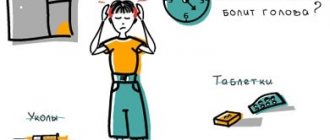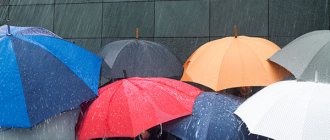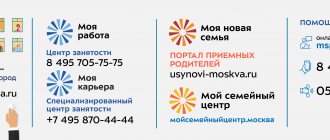Among phobias, the most common is the fear of contracting an incurable disease.
And although cardiovascular pathologies are in first place among the causes of death, more often people are afraid of getting cancer. There are a huge number of prerequisites for the development of cancerophobia. Recently, the number of cancer patients has been growing rapidly. Many of them face expensive and painful treatment, funds for which, as they say, are raised by the whole world. Sometimes it seems that cancer spreads as quickly as the flu, which is why people begin to fear this disease. Today the following situation has developed: fear of cancer (cancerophobia) is a more common pathology than cancer itself.
According to statistics, women are more likely to suffer from this disorder, since they are more emotional and more often “try on” the situation for themselves. If a loved one dies of cancer, they inevitably wonder: “What if this happens to me too?”
It is normal to worry about your health and be afraid of incurable diseases, but cancerophobia, like other types of phobias, is an irrational, greatly exaggerated fear. Very often, patients understand this, but cannot cope with the problem on their own.
Reasons for development
The main reason for the spread of cancerophobia is that people know little about this disease. In the minds of the common man, cancer is:
- inevitable death;
- a disease that occurs without specific causes, it is impossible to prevent its development, and it is useless to fight it;
- painful treatment. Radiation therapy, chemotherapy and surgery are quite difficult for patients to tolerate and have many side effects. But all these methods only in very rare cases lead to healing from cancer.
Many people believe that any other disease can be cured. And when a person is diagnosed with cancer, it is already a death sentence. Often patients “give up”, considering themselves sentenced to death.
The development of cancerophobia is also facilitated by the emergence of traditional healers who claim that only they know how to get rid of cancer. They directly state: it is useless to go to ordinary hospitals, because doctors are powerless against this terrible disease. The same effect occurs after numerous advertisements of “unique” products that can save a person not only from cancer, but also from other serious pathologies.
The common practice of concealing the diagnosis plays a significant role in spreading the fear of contracting an incurable disease such as cancer. Usually doctors hide this terrible diagnosis from the patient until the last minute, in the hope of recovery. This leads to the fact that everyone knows about the huge number of people who have died from cancer, but almost no one has heard about cases of healing from this disease. Recently, much attention has been paid to medical education of the population, since cancer can only be cured if the tumor is detected at an early stage of development.
The fear of death is present in every person; it is inherent in nature and is one of the manifestations of the instinct of self-preservation. However, not all people have a fear of getting cancer. Several types of people have prerequisites for the development of cancerophobia:
- If a person feels unwell, but numerous examinations do not reveal diseases that could explain the deterioration in health. Everyone has heard about cases of death from cancer, the media reports about this disease every now and then, cancer patients are surrounded by almost every person. Gradually, such a person begins to consider himself a cancer patient.
- The risk of developing a malignant tumor is much higher in people with a family history of similar cases. But this does not mean that they will definitely get cancer, but they develop cancerophobia more often than other people.
- If a person himself has once suffered from cancer, then he may also develop this phobia. He may constantly worry that the oncologists did not complete his treatment, which means that the disease will return after a while.
There is another category of people who are prone to developing a fear of getting cancer—doctors. They know about this terrible disease more than other people; they constantly encounter cancer patients in
in their practice, they see their suffering and often transfer this picture to themselves.
Most often, middle-aged people (30-40 years old) who have not achieved great success in their career or family life suffer from cancerophobia. They are distinguished by an increased level of anxiety and frequent depression, often occurring in a latent form. Depressive disorder in this case is not accompanied by low mood; it is characterized by various somatic manifestations, which the patient takes for symptoms of an incurable disease.
All carcinophobes have one common character trait. Almost all of them are easily suggestible and need a person to lead them through life (leader dependence). Therefore, they believe various folk “healers”, gurus and other charlatans who promise their healing. People who are afraid of getting cancer are the leaders in the consumption of dietary supplements, but they also use products that are harmful to their health.
Such methods of “recovery” do not lead to getting rid of cancerophobia. The patient, on the contrary, becomes dependent on such treatment, and the health problems arising from this are treated in the same ways. This doesn't lead to anything good in the end.
How to Reduce Common Chemotherapy Side Effects
Hair loss
Not all chemotherapy drugs cause hair loss, but it is a common side effect. The drugs affect the place where the hair root is located - the hair follicle, disrupting hair growth. Gradually, the hair becomes thinner and weaker and falls out, not only on the head, but also on the face, limbs, under the arms and on the pubic area.
For the most part, baldness is a psychological problem. Women experience the loss of beautiful and long hair especially hard. The following tips will help patients cope with hair loss more easily:
- Ask your doctor if the treatment regimen he prescribed will cause baldness. If so, it is advisable to take care of purchasing a wig in advance, this will allow you to choose its color to match your natural hair color.
- Choose a medical shampoo for dry and damaged hair. Use a soft comb.
- Do not carry out aggressive procedures: do not use curlers or curling irons. Do not perm under any circumstances - this will completely ruin your already weakened hair.
- Cut your hair short and wear a hat in advance. If you feel uncomfortable, contact your family - they will always support you. And most importantly, remember that hair growth will be restored after the course of treatment is completed.
Nausea and vomiting
Nausea and vomiting during a course of chemotherapy is associated with damage to the gastric mucosa by chemotherapy drugs or their effect on certain structures of the nervous system. This complication does not occur in all patients, and its manifestations vary in intensity.
If nausea bothers you for several days, consult your doctor. He or she will prescribe an antiemetic to prevent or reduce nausea.
To ease nausea and avoid vomiting, follow these tips:
- Reduce the amount of food, compensating for the frequency of meals.
- Eat slowly, chewing your food thoroughly. Drink in small sips.
- Avoid rough, sweet, fatty, spicy or salty foods.
- Do not eat hot food - wait until the food has cooled to room temperature.
- If nausea bothers you in the morning, before getting up, eat some cookies or drink a glass of cool, clarified juice without sugar.
- For severe nausea, try sucking on an ice cube or lemon candy. However, if you have damage to your mouth, avoid anything sour.
- Avoid strong odors: cooking food, cigarette smoke, perfume. Try not to cook your own food.
- After eating, don't go to bed - sit in a chair, watch TV or read a book for a couple of hours.
- If you feel a strong frequency, take a few deep breaths and try to go to sleep.
- Do not eat or drink for two hours before and after your chemotherapy treatments.
Anemia
Chemotherapy disrupts bone marrow function, causing a decrease in the number of red blood cells in the blood. This anemia is called aplastic anemia.
The main function of red blood cells is due to the fact that they contain hemoglobin - a red pigment that is capable of carrying oxygen from the lungs to other organs of the body. During a course of chemotherapy, the level of hemoglobin in the blood decreases and oxygen delivery decreases. This is what causes the main symptoms of anemia: weakness, increased fatigue and irritability.
The body tries to compensate for the insufficient amount of oxygen in the blood - breathing and heart rate increase, and chills occur. If you feel this, consult your doctor.
During the course of treatment, the patient periodically undergoes blood tests. If the level of red blood cells is very low, the doctor will prescribe a blood or red blood cell transfusion to alleviate the patient’s condition.
To cope with weakness and fatigue, follow these tips:
- Increase the amount of sleep you get at night.
- Try to develop the habit of taking a nap during the day.
- Limit physical activity. Don't hesitate to ask family and friends for help.
- Get enough vitamins and iron.
- Don't change your position too suddenly. In a person with low oxygen concentration in the blood, this can cause dizziness and fainting.
Fragility and brittleness of nails
Nails, like hair follicles, are vulnerable to chemotherapy. From chemotherapy they darken, become brittle, brittle, and longitudinal white stripes appear on them.
The only thing that can be recommended to a patient during chemotherapy is to cut his nails short. If they start to darken or peel too much, see a doctor—this is a sign of a fungal infection.
Dry and flaky skin
Chemotherapy drugs also act on skin epithelial cells. Therefore, during the course of treatment, patients are often bothered by dryness and flaking of the skin, and acne. Usually the skin recovers after treatment, but it needs to be looked after - dry skin cracks very easily, and cracks on it are entry points for infection. The following tips will help you protect your skin:
- If acne appears on your skin, use antibacterial soap when washing your face. After using the toilet, the face is not wiped, but blotted, after which it is advisable to use moisturizing creams.
- Take a warm shower. Cold and hot water damage the skin.
- Avoid using cologne, perfume, or aftershave that contains alcohol.
- When washing dishes and doing housework, use rubber gloves.
- Protect your skin from the sun. When outside, wear long-sleeved cotton shirts and don't forget a hat.
If your skin is very itchy, has a rash or hives, consult a doctor - this is a sign of an allergy to anticancer drugs.
Constipation and diarrhea
Cells in the mucous membrane of the gastrointestinal tract are vulnerable to chemotherapy. Therefore, a common side effect of chemotherapy is diarrhea. If diarrhea lasts longer than a day or is accompanied by painful sensations, consult a doctor - he will prescribe the necessary medications.
During a course of chemotherapy, the patient is prescribed a strict diet and daily routine. Sometimes the human body reacts to a decrease in the amount of food and a decrease in physical activity with constipation. If you cannot go to the toilet for more than two days, tell your doctor. If necessary, he will prescribe laxatives or an enema.
Ulcers on the oral mucosa
In a healthy person, the cells of the oral mucosa are quickly restored, so they are vulnerable to the effects of chemotherapy. Chemotherapy drugs cause dry mouth, irritation and ulcers on the mucous membranes. Stomatitis causes severe pain and allows infection to enter the body.
The following tips will help you avoid injury to the oral mucosa:
- Before starting a course of treatment, visit your dentist to treat caries and inflammatory diseases of the oral cavity. Remember that carious teeth are a chronic source of streptococcal infection, which can cause blood poisoning.
- Brush your teeth after every meal. Use a soft brush. Consult your dentist, he will help you choose the necessary products and explain the method of gentle teeth cleaning.
- Do not rinse your mouth with salt, soda or alcohol.
- Don't smoke - smoking dries and irritates the mucous membranes of the mouth.
- Do not eat hot food or drink hot drinks. Avoid rough foods, preferring dairy products, vegetable and fruit purees and soft fruits.
If during the course of antitumor treatment you develop ulcers on the oral mucosa, consult a doctor. He will prescribe the necessary medications that speed up healing and reduce pain.
Bleeding disorders
There are between two hundred and four hundred billion platelets in a liter of adult blood. These are small platelets of blood that provide blood clotting. They are produced by special cells of the red bone marrow - megakaryocytes.
Chemotherapy drugs interfere with the function of megakaryocytes, reducing the number of platelets, so in patients during the course of treatment, the slightest damage causes significant bleeding. In addition, bruises, nosebleeds, or bleeding gums may appear on the patient’s body for no apparent reason. Sometimes blood appears in the urine or stool.
The level of platelets in the patient's blood is constantly monitored during the course of treatment. If it decreases to critical values, he is prescribed a platelet transfusion.
To avoid bleeding, take the following precautions:
- Do not take aspirin or other antipyretics without a doctor's prescription. These drugs thin the blood and increase bleeding.
- Be careful when shaving, cooking, using scissors and needles.
- Avoid physical exercise - bruises and sprains cause massive hemorrhages in patients with bleeding disorders.
- Do not drink alcoholic beverages under any circumstances.
Immunodeficiency
Chemotherapy drugs inhibit the formation of leukocytes in the red bone marrow - cells with which the human body fights infections. Thus, chemotherapy causes transient immunodeficiency.
During the course of treatment, the patient periodically undergoes a complete blood count to monitor the number of white blood cells. If their level drops to critical levels, the doctor will prescribe the necessary medications. In this case, the dose of chemotherapy is reduced, and the next course of treatment is postponed to a later time.
Avoiding infections is quite simple; to do this, follow these precautions:
- Do not contact people who have signs of infectious diseases - cough, runny nose, rash. Avoid public transport and places where there are usually a lot of people.
- Wash your hands before eating and after using the toilet.
- Be careful when shaving and trimming nails. It is advisable to switch to an electric razor to avoid cuts.
- Brush your teeth with a soft toothbrush - it will not damage your gums as much.
- Take a warm shower daily. Use only soft sponges.
- Never squeeze pimples. In a person with reduced immunity, this will lead to blood poisoning.
- If you accidentally injure yourself, immediately treat the damaged area with an antiseptic.
Signs of infection include: fever, chills, cough, runny nose, redness and itching around the wound or injection site. If you have signs of infection, contact your doctor immediately to prescribe a course of antibiotics.
Urinary disorders
Some chemotherapy drugs irritate the bladder and cause problems with kidney function. If you feel pain or burning when urinating, or see blood in your urine, contact your doctor immediately.
Usually, to avoid bladder irritation, it is enough to consume a lot of fluids - still water, juices. However, it is worth remembering that chemotherapy requires strict adherence to a diet, and only a doctor can prescribe the amount of fluid you should consume per day.
It is worth remembering that some chemotherapy drugs change the color of urine. The doctor should warn you about this to avoid unpleasant surprises.
Edema
The amount of fluid in the body is regulated by hormones - vasopressin and aldosterone. Chemotherapy drugs cause hormonal changes that change the balance between consumed and excreted fluid in favor of its retention in the body. This is what causes swelling.
If swelling occurs, notify your doctor. He will review the diet, limiting fluid and salt intake and prescribing diuretics.
Manifestations of cancerophobia
This type of nosophobia can manifest itself in different ways.
In some cases, this phobia is in a reactive state (the mildest form), in others it develops into a persistent neurosis, but sometimes oncophobia turns into psychosis, accompanied by delusions and hallucinations.
There are several degrees of manifestation of this type of phobia:
- The patient has oncophobia, but he is able to control his actions. The life of such a person does not come down to constant attempts to identify a non-existent dangerous disease, although thoughts about it still arise regularly;
- a person with this type of phobia constantly undergoes special examinations. He understands that his fears are unfounded, but he cannot do anything about them. Cancerophobia in this case is manifested by insomnia and increased anxiety. The patient constantly thinks about his death, worries about his children and other relatives;
- The patient, against the background of fear of getting cancer, develops a fanatical desire to maintain health and lead a healthy lifestyle. He is not only constantly examined, but also uses various means that, in his opinion, prevent cancer;
- a person who is confident in his illness believes that doctors simply cannot identify it. He may feel intense hatred towards others because they do not have the disease and are unable to understand the suffering he is experiencing. Sometimes such people may think that doctors have found a tumor on him, but they are simply hiding the truth from him.
Sometimes carcinophobes are so afraid of discovering cancer that they simply avoid contacting specialists and undergoing appropriate examinations. Often the fear is so great that they do not go to the doctor even if they have real symptoms of the disease.
The behavior of people with this type of phobia is rarely aimed at actually protecting their health; most often it is intrusive, exhausting and limiting activity. This behavior is aimed at reducing anxiety. First of all, a carcinophobe will avoid danger in every possible way. In his understanding, anything that can lead to the development of cancer is dangerous.
From the pages of the “yellow” press they regularly report that malignant tumors arise from mobile phones, solariums, power lines, etc. The patient will try to move away from power lines and refuse to use telephones and visits to the solarium. But, in the end, he finds himself backed into a corner, because in his mind literally everything becomes dangerous: household appliances, food, medicine and even clothing.
To avoid danger, a cancer phobe may refuse a medical examination and avoid communicating with people who actually have cancer. He is not always able to avoid situations that are in one way or another connected with cancer. Then the carcinophobes will make efforts to reduce anxiety. He will try to learn as much as possible about the disease that frightens him, find information about new research in the field of oncology, etc. Such an individual will obsessively seek support from loved ones; their assurances that he will not get cancer or die will slightly reduce the degree of anxiety, but after a while it will increase again.
Cancerophobia may seem like a harmless disease, but this is far from the case. A person not only cares about his health, he has a severe mental disorder, which can be accompanied by generalized anxiety disorder, obsessive-compulsive disorder, hypochondriacal disorder and other mental problems.
How to get rid of cancerophobia: advice from a psychologist
The best decision when symptoms of a disorder appear in yourself or a loved one is to contact a psychotherapist. Consultations with a psychologist will help you cope with unaccountable fear and learn to control your emotions. In this situation, it is very important to think rationally. If with other phobic disorders you can avoid the object of your fears for many years (for example, refuse to fly with aerophobia, not climb to heights with acrophobia, etc.), it is impossible to “hide” from cancerophobia - after all, you cannot completely refuse medical care.
Doctors at the Leto clinic use methods of rational and cognitive behavioral psychotherapy. If necessary, benzodiazepines and antidepressants with sedative and anti-anxiety effects are prescribed at the initial stages of treatment.
After normalization of the condition, we recommend visiting a doctor regularly , this is especially important for patients at risk of cancer (if close relatives have cancer, heavy smokers, etc.). A systematic diagnostic examination will not only prevent the development of chronic age-related diseases, but will also help to identify more serious pathologies in time.
Therefore, you should not hesitate and live every day with a feeling of fear and tension. Call us at 8(969)060-93-93 ! Our consultant will answer all questions regarding the treatment of cancerophobia and select a convenient time for you to visit the doctor.
Treatment options
The fear of contracting an incurable disease can and should be treated. It doesn't matter what kind of disease is the object of fear. Someone suffers from a fear of contracting rabies, someone is afraid of tuberculosis or cancer, but in each of these cases the same methods of cognitive and behavioral psychotherapy are used. But the exact treatment regimen is drawn up individually after assessing the patient’s condition.
A qualified psychotherapist must first make sure that his patient really does not have cancer. To do this, you need to undergo a detailed examination. If during the examination no organic pathologies were identified that could explain the origin of the symptoms troubling the patient, then the doctor’s efforts are directed to assessing his psychological state.
During the conversation, the psychotherapist must find out exactly when the patient had thoughts about the appearance of cancer, whether this was preceded by traumatic situations, what measures he took for healing, etc. Diagnosis of cancerophobia must be differentiated; this is necessary to exclude schizophrenia, psychopathy and neurotic disorders.
The features of the therapy used largely depend on the severity of cancerophobia and the presence of concomitant mental pathologies:
- Drug treatment of cancerophobia may involve the use of tranquilizers, antidepressants, anxiolytics, etc. Modern psychological care centers often practice monotherapy, during which the patient uses only one drug throughout the entire course of treatment.
- If cancerophobia is a manifestation of an anxiety disorder, as well as with panic attacks, obsessive-compulsive neurosis and other mental disorders, the efforts of doctors will be aimed at curing the underlying pathology.
- If a patient with cancerophobia experiences somatic pain, he may be advised to take antispasmodics and analgesics. If a somatic pathology is identified, the patient will be referred for consultation to a specialized specialist (therapist, neurologist, surgeon, cardiologist, etc.).
All of the above methods are often used in the treatment of oncophobia and other irrational fears, but still the main method of various phobias is psychotherapy. Correction of the mental state requires identifying the underlying causes of the development of such fear. Quite often, behind the fear of cancer lies a panicky horror of premature death. But why the patient is really so afraid of dying is often difficult to discover, since the reasons for the fear are hidden very deep in the subconscious.
It is normal to be afraid of death, and this is inherent in all life on the planet, but the fear of a carcinophobe has nothing to do with this. The fear of developing malignant tumors may be based on childhood psychological trauma, persistent irrational beliefs, fears that a person experienced in childhood, but then outgrew them, but they passed into the unconscious. Using the techniques of classical psychoanalysis and Jung's depth psychotherapy, problems of this level can be solved. Individual patient consultations can be supplemented with family therapy sessions, this is necessary to resolve problems in relationships between family members.
A technique called therapeutic storytelling may also be used. It is most effective when working with children. After a conversation with the patient, the doctor composes a story whose characters are inspired by the patient’s fears. A tale about the fear of getting cancer will help you understand that there are no hopeless situations.
What is the danger of cancerophobia?
Oncologists are of the opinion that it is not scary to be afraid of the disease, but it is scary to do nothing. The most serious consequence of cancerophobia is the patient’s fear of seeing a doctor. Doctors recommend that everyone over 35–40 years of age undergo annual preventive examinations with mandatory clinical tests of blood, urine and feces, ultrasound of internal organs, ECG, and chest x-ray.
But people suffering from cancerophobia categorically do not want to visit a therapist, not only for a routine medical examination, but also if they have any complaints. To the persuasion and requests of relatives, they usually answer: “What if they find something on me?” As a result, age-related physiological changes progress (and many of them are quite amenable to drug correction).
But even if a malignant tumor develops, starting treatment at an early stage greatly increases the likelihood of a successful outcome. And in such a situation, every day of delay can become fatal.
How to solve the problem yourself
Today, there are many techniques that can relieve the fear of cancer. But most of them require special knowledge and skills that psychotherapists acquire during study and practice. However, there are ways you can overcome your phobia yourself.
The most effective technique for dealing with fears is a method based on a simple mechanism. When you are in a stressful situation, whether positive or negative, the brain forms a close connection between your emotions and what you see, hear and feel at the moment. That is why the smell of tangerines takes us back to childhood, when we were looking forward to New Year's gifts from Santa Claus, and the smell of incense makes us feel elated, as if we were visiting a temple. A pleasant emotional state can be caused by the sounds of your favorite music, to which you danced with your loved one, etc.
This mechanism can be used to combat irrational fear. Try to attach positive emotions to a specific action, such as pinching your earlobe or rubbing your hands. If you feel that a phobia attack is about to begin, simply touch your ear or elbow. Pleasant pictures will appear in the brain, and the intensity of fear will be reduced. Gradually, the manifestations of the phobia will become less vivid, and after a while they will disappear altogether.
Today, a very common theory is that cancer occurs against the background of accumulated grievances and negative emotions. Therefore, for self-healing it is very important to find inner peace. If you love yourself, forgive old grievances, and enjoy life at the moment, then the phobias will recede.
How to preserve eggs and sperm
First of all, you need to consult a fertility specialist. Then the patient receives a referral for a spermogram and a test that shows how sperm tolerate freezing.
After receiving the results, the man donates blood for HIV, hepatitis and syphilis and, if the results are negative, donates seminal fluid. Semen storage costs from 3,500 rubles per year, depending on the sperm bank. It is better to contact specialized reprobanks rather than IVF clinics. Reprobank has better conditions for storing frozen biomaterial and much better prices.
Donating eggs is much more difficult. A woman will have to undergo a course of hormonal stimulation to get not one egg, but ten. The eggs are then collected from the ovary by inserting a thin needle through the vagina under general anesthesia. In some cases, hormonal stimulation is contraindicated, so consultation and permission from an oncologist is necessary.
A special method, vitrification, allows you to save eggs. This is ultra-fast freezing, in which the solution in which the object is located does not crystallize, but turns into a glass-like state. This explains the name - from Latin “vitrum” is translated as glass.
Vitrification does not damage eggs and allows you to preserve 99% of them indefinitely. There are cases where eggs were used for fertilization thirteen years after freezing.








